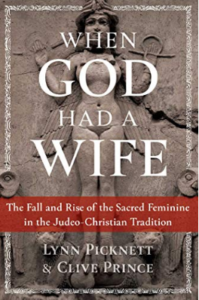
Reveals the tradition of goddess worship in early Judaism and how Jesus attempted to restore the feminine side of the faith
• Provides historical and archaeological evidence for an earlier form of Hebrew worship with both male and female gods, including a 20th-century discovery of a Hebrew temple dedicated to both Yahweh and the warrior goddess Anat
• Explores the Hebrew pantheon of goddesses, including Yahweh’s wife, Asherah, goddess of fertility and childbirth
• Shows how both Jesus and his great rival Simon Magus were attempting to restore the ancient, goddess-worshipping religion of the Israelites
Despite what Jews and Christians–and indeed most people–believe, the ancient Israelites venerated several deities besides the Old Testament god Yahweh, including the goddess Asherah, Yahweh’s wife, who was worshipped openly in the Jerusalem Temple. After the reforms of King Josiah and Prophet Jeremiah, the religion recognized Yahweh alone, and history was rewritten to make it appear that it had always been that way. The worship of Asherah and other goddesses was now heresy, and so the status of women was downgraded and they were blamed for God’s wrath.
However, as Lynn Picknett and Clive Prince reveal, the spiritual legacy of the Jewish goddesses and the Sacred Feminine lives on. Drawing on historical research, they examine how goddess worship thrived in early Judaism and included a pantheon of goddesses. They share new evidence for an earlier form of Hebrew worship that prayed to both male and female gods, including a 20th-century archaeological discovery of a Hebrew temple dedicated to both Yahweh and the goddess Anat. Uncovering the Sacred Feminine in early Christianity, the authors show how, in the first century AD, both Jesus and his great rival, Simon Magus, were attempting to restore the goddess-worshipping religion of the Israelites. The authors reveal how both men accorded great honor to the women they adored and who traveled with them as priestesses, Jesus’s Mary Magdalene and Simon’s Helen. But, as had happened centuries before, the Church rewrote history to erase the feminine side of the faith, deliberately ignoring Jesus’s real message and again condemning women to marginalization and worse.
Providing all the necessary evidence to restore the goddess to both Judaism and Christianity, Picknett and Prince expose the disastrous consequences of the suppression of the feminine from these two great religions and reveal how we have been collectively and instinctively craving the return of the Sacred Feminine for millennia.
